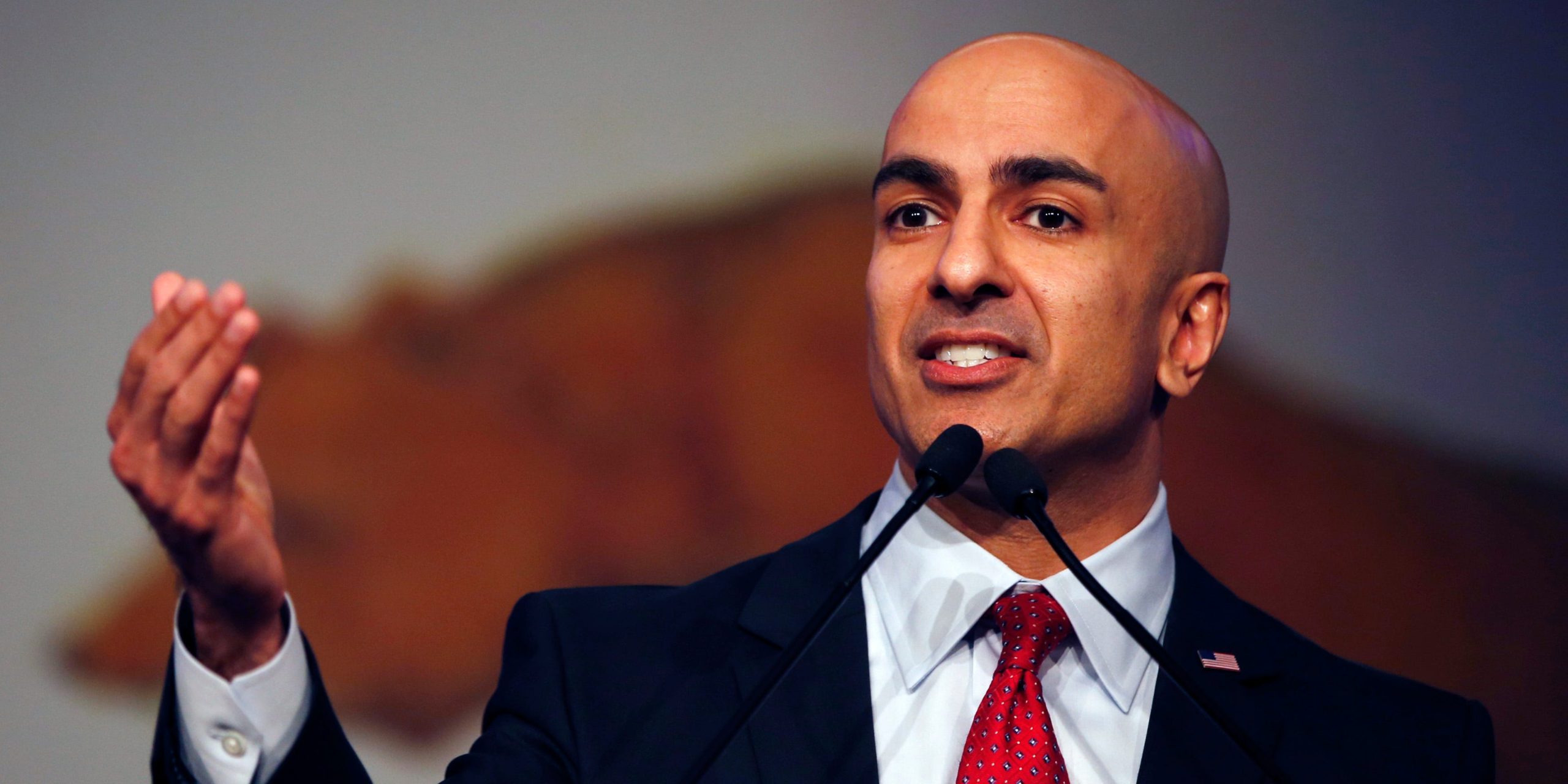REUTERS/Stephen Lam
- The US economy will face “enormous consequences” if further fiscal stimulus is not approved, and there are no “moral hazards” to providing more aid, Minneapolis Federal Reserve President Neel Kashkari told CNBC on Wednesday.
- “There are enormous consequences if we just let things go, and the downturn will end up being much, much worse,” Kashkari said.
- The Fed president said that unlike the 2008 financial crisis, the pandemic was not born of a weakness in the financial system, so there should be no qualms about using public money to support airlines and other industries.
- “There are millions of Americans who are directly affected by this, and I think just letting them deal with it on their own — I don’t think it’s the right thing to do, and I don’t think it’s good for the economy overall,” he said.
- Visit Business Insider’s homepage for more stories.
Minneapolis Federal Reserve President Neel Kashkari told CNBC on Wednesday that the US economy would face “enormous consequences” without a new federal coronavirus relief package.
“There are enormous consequences if we just let things go, and the downturn will end up being much, much worse,” Kashkari said on CNBC’s “Squawk Box.”
“If we don’t support people who have lost their jobs, then they can’t pay their bills, and then it ripples through the economy, and the downturn is much worse than it needs to be,” he added.
Kashkari is one of the more dovish members of the Federal Open Market Committee, which sets US monetary policy.
“Whatever assistance can be provided to people who have lost their jobs is important,” Kashkari said. “Whatever assistance can be provided to small businesses that have been affected by the pandemic is important. And supporting state and local governments, whose revenues have been hammered by the COVID crisis, that also is important, because they employ a lot of people.”
Kashkari said that unlike the 2008 financial crisis, the pandemic did not pose a “moral hazard” in which public money couldn’t be used to support hard-hit industries.
“This is a natural disaster effectively hitting the US economy,” he said, adding: “There are millions of Americans who are directly affected by this, and I think just letting them deal with it on their own — I don’t think it’s the right thing to do, and I don’t think it’s good for the economy overall.”
On Tuesday, President Donald Trump said he would end stimulus negotiations, prompting US stocks to fall. Hours earlier, the Fed chairman, Jerome Powell, had warned of the “tragic” consequences of no further stimulus.
Rep. Alexandria Ocasio-Cortez blasted Trump’s decision, saying that without further federal spending the US economy would be “staring down the barrel” of one of the largest mass evictions since the Great Depression.
But later Tuesday, Trump appeared to change tack, tweeting that he was open to signing legislation that would send direct payments to Americans and aid to airlines and small businesses.
“If I am sent a Stand Alone Bill for Stimulus Checks ($1,200), they will go out to our great people IMMEDIATELY. I am ready to sign right now. Are you listening Nancy?” he tweeted, referring to House Speaker Nancy Pelosi.
US stocks climbed as much as 1.3% on Wednesday.













